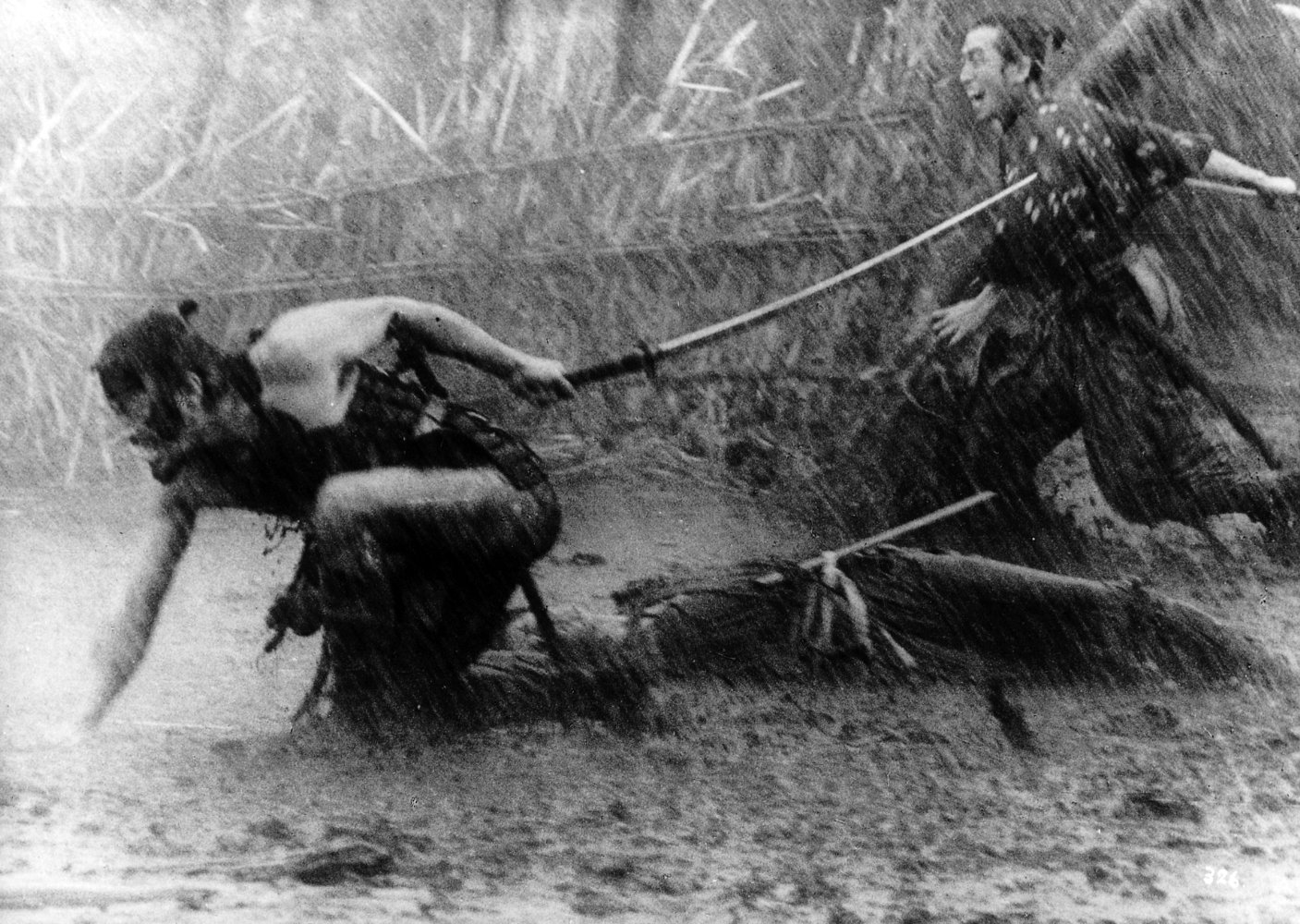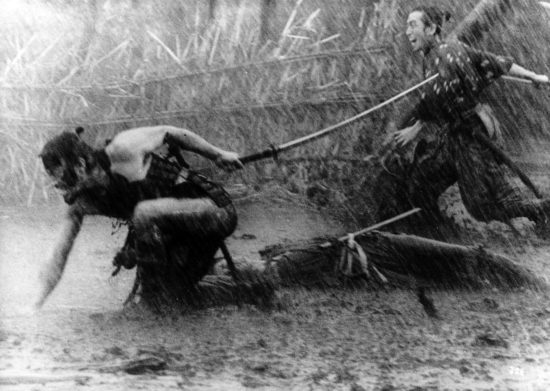

Review by Forrest Maynock
Seven Samurai is one of the greatest films ever made. The film shatters expectations in all categories from acting to editing.
Few films have captured the wide range emotions and visual mastery that Seven Samurai has.
The film’s story is about a village of farmers who are being terrorized by bandits who show up every year around harvest time and raid the village.
The village decides that it must hire samurai to fight off the bandits when they arrive.
The village hires seven samurai to fight, and the story concludes with a large strategic battle.
In his 2001 review of the film, Roger Ebert wrote of Akira Kurosawa, “[I]t could be argued that this greatest of filmmakers gave employment to action heroes for the next 50 years, just as a fallout from his primary purpose.”
The film holds a 100% score on Rotten Tomatoes, was ranked 17 on Sight and Sounds Top 50 Greatest Films list and was rated a 4/4 by Roger Ebert.
Seven Samurai was released in 1954, in Japan. The film’s run time is 3 hours and 28 minutes, and it is available on Netflix and is also available on Blu-ray and DVD from The Criterion Collection.
Kurosawa was a genius with his camera. The camera work in this film is really other worldly for 1954.
Kurosawa also utilized the natural environment to his advantage in many shots.
The final battle, for example, has large amounts of rain and mud, but the camera work makes the battle even more intense in spite of the bad weather conditions.
Kurosawa was a very visual director, and that is evident in his work here.
One scene early in the film involves one of the seven samurai, Miyaguchi, facing off in a duel with another unnamed samurai, and after a brief standoff the unnamed samurai charges Miyaguchi’s character.
The aftermath is a slow motion scene of the unnamed samurai falling to the ground dead.
That scene may be one of the best uses of slow motion ever put to film.
It perfectly captures the essence and gravity of the life and death situation presented.
Another classic scene involves six of the seven samurai running through a field in response to an alarm in the village, and the camera utilizes a jump cut from one samurai to another showing them all running individually.
Jump cutting is hard to utilize in film, but it is pulled off perfectly in this scene.
The script for the film is excellent. The dialogue (translated) is crisp and realistic.
There are not many lines that seem over dramatic or out of place, and the ones that do seem to almost be out of place for a reason.
One standout quote comes from the leader of the samurai (Shimura) who says, “This is the nature of war: By protecting others, you save yourselves. If you only think of yourself, you’ll only destroy yourself.”
The story itself is considered one of the earliest uses of the “hero gathering” plot in film, and has a deep and layered story for many of the characters presented.
The story does not dwell to long on any one subject or character, and also paces the film to fit the three and a half running time of the film nicely.
The writing for this film gives the characters complex backgrounds and fulfilled arcs, and also sets up a classic “good vs evil” scenario.
The film stars many of Kurosawa’s regulars, including Takashi Shimura, Seiji Miyaguchi, Minoru Chiaki, and Toshiro Mifune.
All of the seven title characters are well casted and acted, but Toshiro Mifune is light years ahead of his peers in this performance.
Mifune plays the most boisterous of the seven samurai, and also has the biggest character arc among the samurai. This may have been Mifune’s best role.
Shimura portrays the stoic leader of the samurai who is equal parts serious and kind.
His presence gives the film a voice steady calm among many complex characters.
Outside of the samurai, the most prominent role in the film goes to Yoshio Tsuchiya who plays Rikichi, one of the villagers. The role of Rikichi may have the most development in the film, and
Tsuchiya gives the role a certain twist of believable realism.
The acting may be a little overdone at times, but the actors work to bring their characters to life in the best ways possible.
I have seen very few films that can compare with Seven Samurai. It is equal parts masterful camerawork and brilliant acting.
A must watch for film lovers, but maybe a little dense and long for casual film watchers. Score: 10/10.
